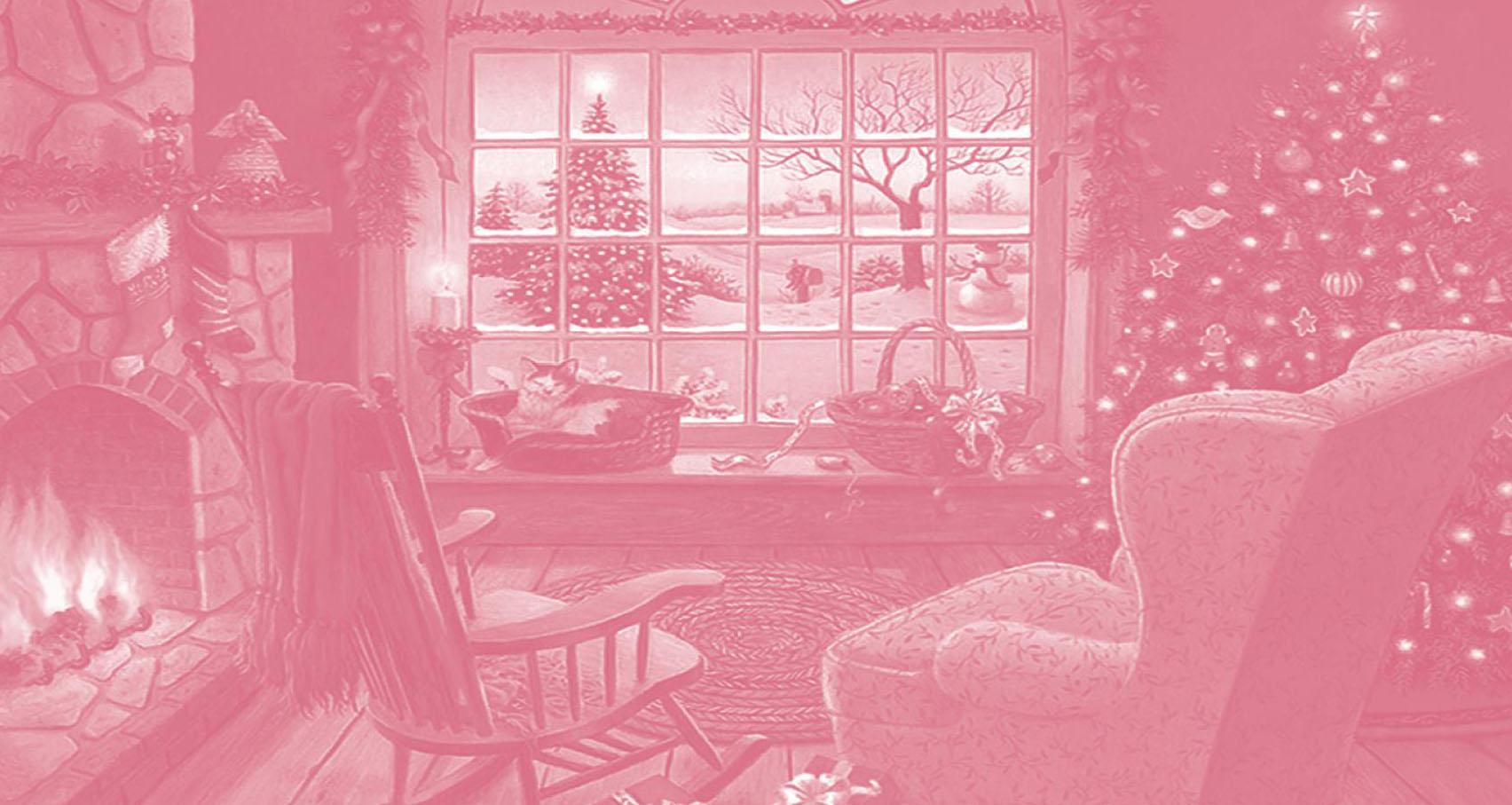《我的安东尼娅》(节选)
2020-12-28薇拉·凯瑟

【導读】薇拉·凯瑟(1873—1947),美国小说家,普利策奖获得者,以描写美国中西部内布拉斯加州的草原生活而闻名。薇拉幼时随父母移居该州一个叫“红云镇”的地方,因该镇地处边疆,所以她有机会接触到来自瑞典、波希米亚、俄罗斯、德国等欧洲移民,并了解他们的生活点滴,这成为其创作的重要素材。长篇小说《啊,拓荒者!》(O Pioneers!, 1913)和《我的安东尼娅》(My Antonia,1918)是公认的佳作,生动再现了早期欧洲移民在美国艰苦奋斗的历程——移民的开拓精神和生活勇气可歌可泣,移民的自然淳朴亦可爱动人!
本文节译自《我的安东尼娅》第二部“雇来的姑娘们”(The Hired Girls)第六章。内布拉斯加州草原上的冬,苍白、寂静、酷冷、漫长,本身似乎并无美感可言。不过,叙述者“我”和他的朋友们在这样恶劣的气候中仍是其乐融融。他们不仅用慧眼在自然的灰色调之外找寻斑斓的色彩,还在故事、嬉戏以及美食中度过了一个个难捱的无聊夜。冬,因为情,变得美好生动了!
Winter comes down savagely over a little town on the prairie. The wind that sweeps in from the open country strips away all the leafy screens that hide one yard from another in summer, and the houses seem to draw closer together. The roofs, that looked so far away across the green tree-tops, now stare you in the face, and they are so much uglier than when their angles were softened by vines and shrubs.
In the morning, when I was fighting my way to school against the wind, I couldnt see anything but the road in front of me; but in the late afternoon, when I was coming home, the town looked bleak and desolate to me. The pale, cold light of the winter sunset did not beautify—it was like the light of truth itself. When the smoky clouds hung low in the west and the red sun went down behind them, leaving a pink flush on the snowy roofs and the blue drifts, then the wind sprang up afresh, with a kind of bitter song, as if it said: “This is reality, whether you like it or not. All those frivolities of summer, the light and shadow, the living mask of green that trembled over everything, they were lies, and this is what was underneath. This is the truth.” It was as if we were being punished for loving the loveliness of summer.
If I loitered on the playground after school, or went to the post-office for the mail and lingered to hear the gossip about the cigar-stand, it would be growing dark by the time I came home. The sun was gone; the frozen streets stretched long and blue before me; the lights were shining pale in kitchen windows, and I could smell the suppers cooking as I passed. Few people were abroad, and each one of them was hurrying toward a fire. The glowing stoves in the houses were like magnets. When one passed an old man, one could see nothing of his face but a red nose sticking out between a frosted beard and a long plush cap. The young men capered along with their hands in their pockets, and sometimes tried a slide on the icy sidewalk. The children, in their bright hoods and comforters, never walked, but always ran from the moment they left their door, beating their mittens against their sides. When I got as far as the Methodist Church, I was about halfway home. I can remember how glad I was when there happened to be a light in the church, and the painted glass window shone out at us as we came along the frozen street. In the winter bleakness a hunger for colour came over people, like the Laplanders craving for fats and sugar. Without knowing why, we used to linger on the sidewalk outside the church when the lamps were lighted early for choir practice or prayer-meeting, shivering and talking until our feet were like lumps of ice. The crude reds and greens and blues of that coloured glass held us there.
On winter nights, the lights in the Harlings windows drew me like the painted glass. Inside that warm, roomy house there was colour, too. After supper I used to catch up my cap, stick my hands in my pockets, and dive through the willow hedge as if witches were after me. Of course, if Mr. Harling was at home, if his shadow stood out on the blind of the west room, I did not go in, but turned and walked home by the long way, through the street, wondering what book I should read as I sat down with the two old people.
Such disappointments only gave greater zest to the nights when we acted charades, or had a costume ball in the back parlour, with Sally always dressed like a boy. Frances taught us to dance that winter, and she said, from the first lesson, that Antonia would make the best dancer among us. On Saturday nights, Mrs. Harling used to play the old operas for us—Martha, Norma, Rigoletto—telling us the story while she played. Every Saturday night was like a party. The parlour, the back parlour, and the dining-room were warm and brightly lighted, with comfortable chairs and sofas, and gay pictures on the walls. One always felt at ease there. Antonia brought her sewing and sat with us—she was already beginning to make pretty clothes for herself. After the long winter evenings on the prairie, with Ambroschs sullen silences and her mothers complaints, the Harlings house seemed, as she said, “like Heaven” to her. She was never too tired to make taffy or chocolate cookies for us. If Sally whispered in her ear, or Charley gave her three winks, Tony would rush into the kitchen and build a fire in the range on which she had already cooked three meals that day.
While we sat in the kitchen waiting for the cookies to bake or the taffy to cool, Nina used to coax Antonia to tell her stories—about the calf that broke its leg, or how Yulka saved her little turkeys from drowning in the freshet, or about old Christmases and weddings in Bohemia. Nina interpreted the stories about the creche fancifully, and in spite of our derision she cherished a belief that Christ was born in Bohemia a short time before the Shimerdas left that country. We all liked Tonys stories. Her voice had a peculiarly engaging quality; it was deep, a little husky, and one always heard the breath vibrating behind it. Everything she said seemed to come right out of her heart.
寒冬襲来,肆无忌惮地在草原小镇上作威作福。自开阔乡间刮来的劲风席卷了这里,刮跑了夏日隔断一个个院落的绿荫墙,房舍看上去像是靠近了。湮没于树尖的屋顶曾那么遥不可及,如今却直视着你的脸,比起有藤蔓和灌木柔化棱角的那会儿,现在的屋顶难看多了。
早上,我顶风去往学校,一路只能瞅见脚下的道;傍晚归家时,整个小镇显得好不荒凉孤寂。 冬日夕阳之光暗淡寒凉,没有去美化什么——好似真相本身具有的光芒。西边烟云低悬,红日堕入云后,给白雪覆盖的屋顶和蓝色的雪堆投下粉色的光边,而后狂风再起,怨愤地歌唱,似在诉说:“你喜欢也好,厌恶也罢,这就是现实。所有那些夏日的无聊、光与影、摇曳在万物之上的那个绿色的活面具,统统都是谎言,如今看到了隐匿其下的东西,那就是真相 !”仿佛我们是因为爱上夏的美好而受到了惩罚。
如果我放学后在操场闲逛,或上邮局取个邮件后在烟摊附近溜达着听些八卦,到家时天便已黑了下来。不见了太阳,冰封的街道漫长而忧伤地在我面前延伸。厨房的窗玻璃透出幽暗的光,经过时,我能闻到正在烹煮的晚餐的香。外面零星几个人影,个个行色匆匆,奔向生火的地方。屋内炉火通红,像磁石般吸引着人们。倘或路遇一位老先生,根本看不到他的脸,只能看到从结霜的胡子和长毛绒帽子中间冒出的红鼻头。年轻人双手插兜,一路雀跃,时而在结冰的边道上试着溜一下。孩子们戴着鲜艳的风帽和羊毛围巾,从来不用走的,总是一出门就跑了起来,挂脖的手套不停拍打侧身。行至循道宗教会,离家便还有大约一半的路程了。犹记得,走在結冰的大街上,倘或正赶上教堂里亮着灯,彩色玻璃窗透出的灯光把我们照亮,别提我有多开心呢!冬日萧索,人们都极其渴望看到些鲜亮的颜色,有如拉普兰人渴望脂肪和糖。有合唱团排练或有祈祷会时,教堂的灯盏会早早亮起,每当此时,我们总会莫名地在教堂外的人行道上徘徊,哆哆嗦嗦地聊着天,直到脚冻得像冰块。是那彩色玻璃透出的天然的红光、绿光和蓝光让我们驻足。
冬日的夜晚,哈林家窗户透出的光也像彩色玻璃般吸引我。那温暖、宽敞的房子里,也有色彩。晚饭后,我常抓起帽子,双手插入口袋,一溜烟儿地穿过柳树篱,像是身后有巫婆追赶。当然,倘或哈林先生在家,身影恰好清晰映在西屋的百叶窗上,那我不会进去,而会转身回家,走那条远路,要穿过大街,一路上还会寻思,待会儿和那两个老人家坐在一起,该读哪本书。
这种扫兴的时候倒让我对玩字谜游戏或在后客厅举行化装舞会的那些夜晚多了几分兴致,萨莉总是在舞会上扮作男孩样儿。就在那个冬天,弗朗西斯教我们跳舞,第一次上课她就说,我们这些人中,安东尼娅会是舞跳得最好的。周六晚上,哈林太太总为我们表演些老歌剧——比如《玛莎》《诺尔玛》《里戈莱托》——表演时还为我们讲解其中的故事。每个周六晚上都像开派对。起居室、后客厅、餐厅又暖和又明亮,有舒服的座椅和沙发,墙上还挂着艳丽的画。在这里,大家都感到放松自在。安东尼娅拿着她的针线活儿,和我们坐在一起——她已经开始为自己缝制漂亮衣裳了。经历过草原上的漫漫冬夜,体验过安布罗什的阴郁沉寂以及母亲的唠唠叨叨,安东尼娅表示,哈林家对她来说“就像天堂一样”。她乐此不疲地给我们做太妃糖或巧克力饼。只消萨莉在她耳边悄语,或查理朝她眨巴三下眼,托尼一准儿会冲进厨房,在已经烧完三餐的炉灶上再次起火。
我们坐在厨房里等待饼干烤好或太妃糖冷却的当儿,妮娜总是哄安东尼娅给她讲故事——像那头牛怎么摔断腿,或尤卡如何从暴涨的河水中救出她那些火鸡仔,或旧时波希米亚的圣诞节和婚礼什么样。妮娜不着边际地解读育婴堂的故事,不论我们怎么揶揄她,她仍然笃信,谢默尔达一家离开波希米亚之前,基督刚刚在那里降生。我们都喜欢托妮讲故事。她的声音有一种特别的魅力,深沉、略带沙哑,人们总能听到声音背后颤抖的呼吸。她所说的每句话似乎都发自肺腑。
(译者单位:北京外国语大学)
